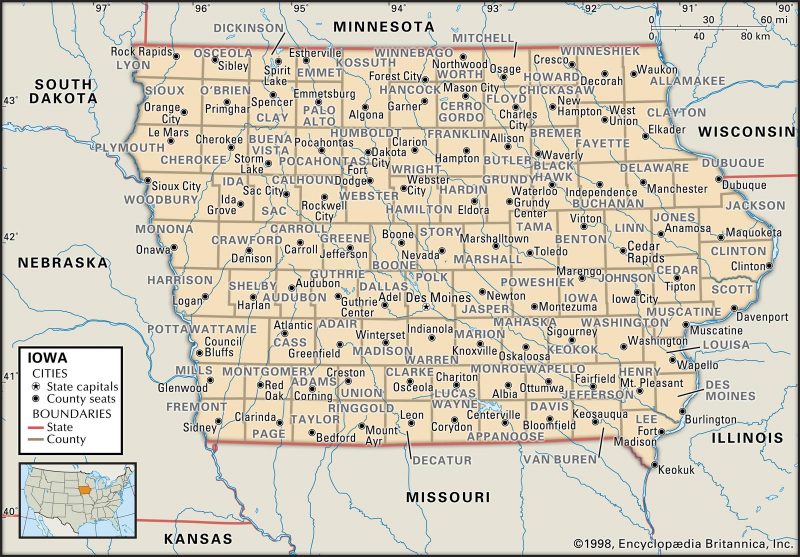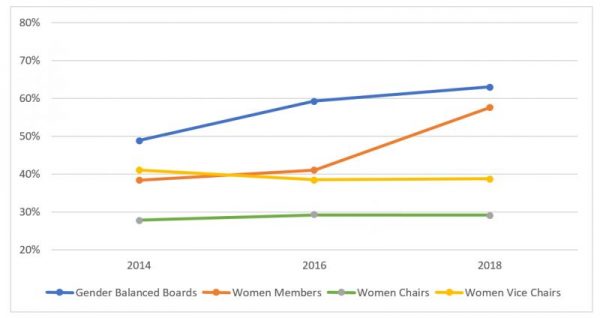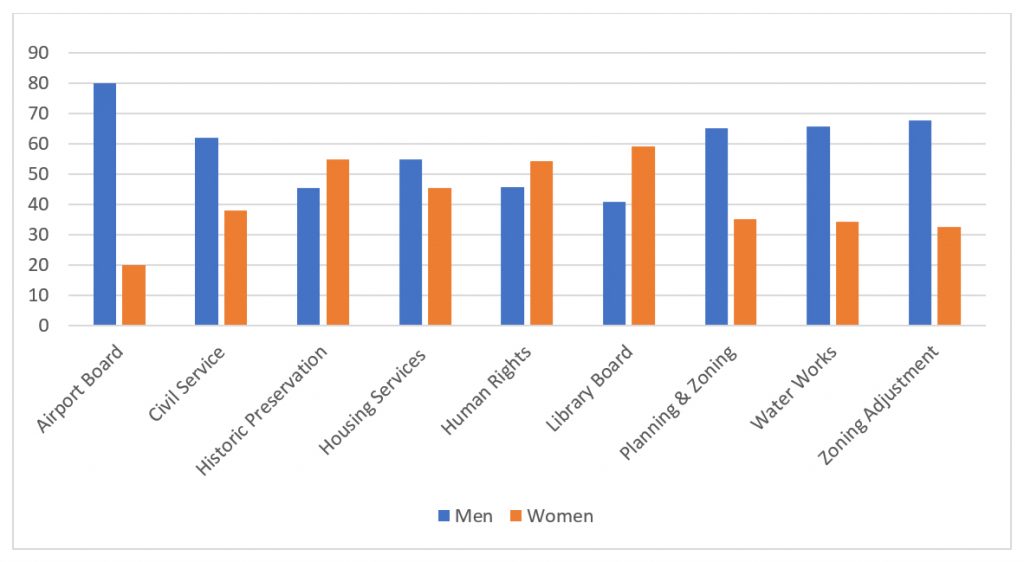
The number of gender-balanced city boards and commissions saw a near 6 percent increase from 2016 to 2018. Of the 211 cities surveyed, 38 had achieved gender balance on all boards examined as part of the Carrie Chapman Catt Center’s Gender Balance Project.
In all, 63 percent of city boards and commissions are gender balanced, and women make up 42.43 percent of board members. The greatest improvements were on water works boards, planning and zoning boards, and airport boards. However, these boards are still predominantly male with women’s membership making up less than 35 percent.

Women’s Representation on City Boards 2014-2018
“The improvements are a positive sign. It means cities are doing a better job following the law and our city government is becoming more representative,” said Kelly Winfrey, interim director of the Catt Center.
The state of Iowa has required all city, county and state boards be gender balanced since 2012. The Catt Center has been conducting its Gender Balance Project since 2014 in an effort to hold officials accountable and measure the effectiveness of the law.
These improvements are good news following the Catt Center’s recent report showing little improvement among county level boards. “Cities have certainly done a better job than counties over the past two years,” noted Winfrey, “but there is still a long way to go before full gender balance is achieved.”
Cities achieving gender balance on all boards and commissions studied are: Ackley, Altoona, Ankeny, Bedford, Bellevue, Bettendorf, Cedar Falls, Clarion, Clive, Coralville, Corning, Council Bluffs, Elkader, Epworth, Grimes, Guthrie Center, Guttenberg, Independence, Johnston, Lake Mills, Le Mars, Nashua, New London, North Liberty, Onawa, Parkersburg, Peosta, Pleasant Hill, Spirit Lake, Storm Lake, Urbandale, Walcott, Waterloo, Webster City, West Des Moines, Wilton, Windsor Heights and Winterset.

2018 Gender Composition by Board
The Catt Center requested information from 211 cities, including all county seats and the 200 most populous cities. Information was gathered from websites when available for cities that did not respond to our request, and 38 cities did not respond or have their board members listed online. The full report is available on the Catt Center’s website.